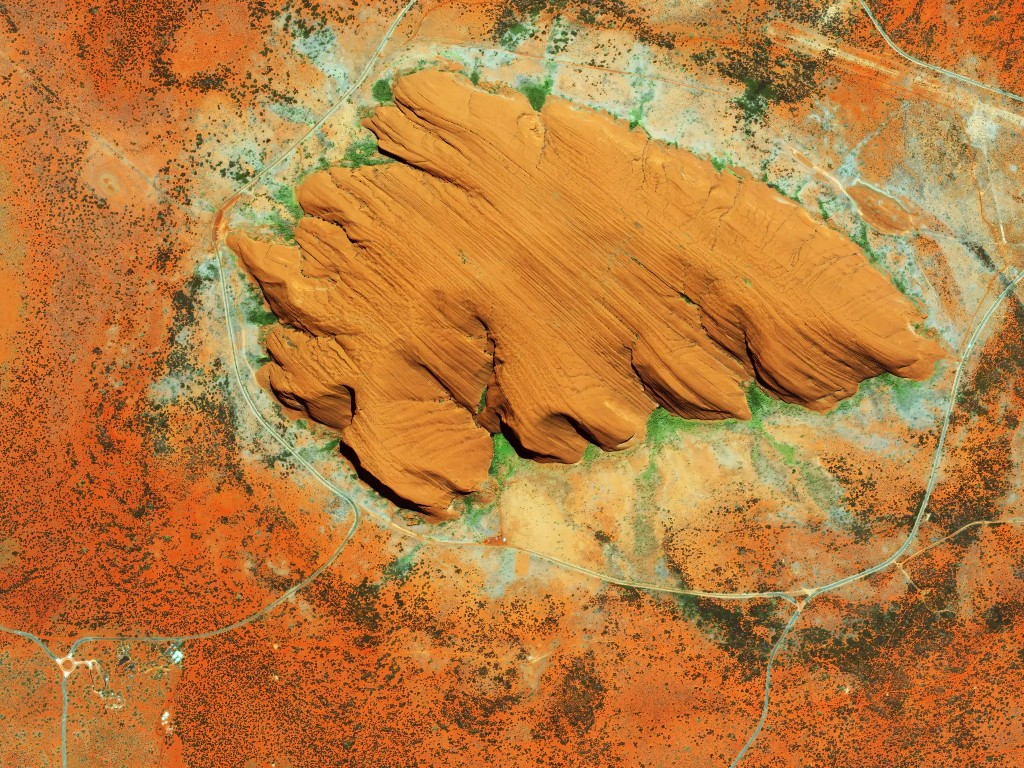Slippy Map Tile Tools.
slippymath
R functions for dealing with slippy map tile servers (Google maps, Open Street Map, Mapbox, Stamen et. al.)
The goal of this package is to take a bunch of logic that was lying around in defunct packages and obscure wikis and make it #rstats cannon in a way that is decoupled from any particular tile service or visualisation front end. Happy mapping!
Installation
## Dev version
remotes::install_github("milesmcbain/slippymath")
## CRAN version
install.packages('slippymath')
Usage
Tile maths
Look at how many tiles you might need:
library(sf)
uluru_bbox <-
st_bbox(c(xmin = 131.02084,
xmax = 131.0535,
ymin = -25.35461,
ymax = -25.33568),
crs = st_crs("+proj=longlat +ellps=WGS84"))
bbox_tile_query(uluru_bbox)
# A tibble: 17 x 8
# x_min y_min x_max y_max y_dim x_dim total_tiles zoom
# <dbl> <dbl> <dbl> <dbl> <dbl> <dbl> <dbl> <int>
# 1 3 2 3 2 1 1 1 2
# 2 6 4 6 4 1 1 1 3
# 3 13 9 13 9 1 1 1 4
# 4 27 18 27 18 1 1 1 5
# 5 55 36 55 36 1 1 1 6
# 6 110 73 110 73 1 1 1 7
# 7 221 146 221 146 1 1 1 8
# 8 442 293 442 293 1 1 1 9
# 9 884 586 884 586 1 1 1 10
#10 1769 1173 1769 1173 1 1 1 11
#11 3538 2346 3539 2346 1 2 2 12
#12 7077 4692 7078 4692 1 2 2 13
#13 14154 9384 14156 9385 2 3 6 14
#14 28309 18769 28312 18771 3 4 12 15
#15 56619 37538 56625 37542 5 7 35 16
#16 113239 75076 113251 75084 9 13 117 17
#17 226478 150153 226502 150168 16 25 400 18
Get a grid of slippy map tile coordinates for a bounding box, given a zoom, or guess a zoom given a max_tiles:
bbox_to_tile_grid(uluru_bbox, max_tiles = 15)
#$tiles
# x y
#1 28309 18769
#2 28310 18769
#3 28311 18769
#4 28312 18769
#5 28309 18770
#6 28310 18770
#7 28311 18770
#8 28312 18770
#9 28309 18771
#10 28310 18771
#11 28311 18771
#12 28312 18771
#
#$zoom
#[1] 15
#
#attr(,"class")
#[1] "tile_grid"
Fetch a grid using your favourite tile server API. Creep on many tile providers here.
Here's a Mapbox example:
library(purrr)
library(curl)
library(glue)
tile_grid <- bbox_to_tile_grid(uluru_bbox, max_tiles = 15)
mapbox_query_string <-
paste0("https://api.mapbox.com/v4/mapbox.satellite/{zoom}/{x}/{y}.jpg90",
"?access_token=",
Sys.getenv("MAPBOX_API_KEY"))
images <-
pmap(tile_grid$tiles,
function(x, y, zoom){
outfile <- glue("{x}_{y}.jpg")
curl_download(url = glue(mapbox_query_string),
destfile = outfile)
outfile
},
zoom = tile_grid$zoom)
Tile compositing
You can compose a list of images and a corresponding tile grid to a spatially referenced raster, meaning you can plot over it with tmap etc.
library(raster)
library(rgdal)
raster_out <- compose_tile_grid(tile_grid, images)
## A convenient wrapper for raster image exports using png::writePNG.
raster_to_png(raster_out, "uluru.png")
Result: 
